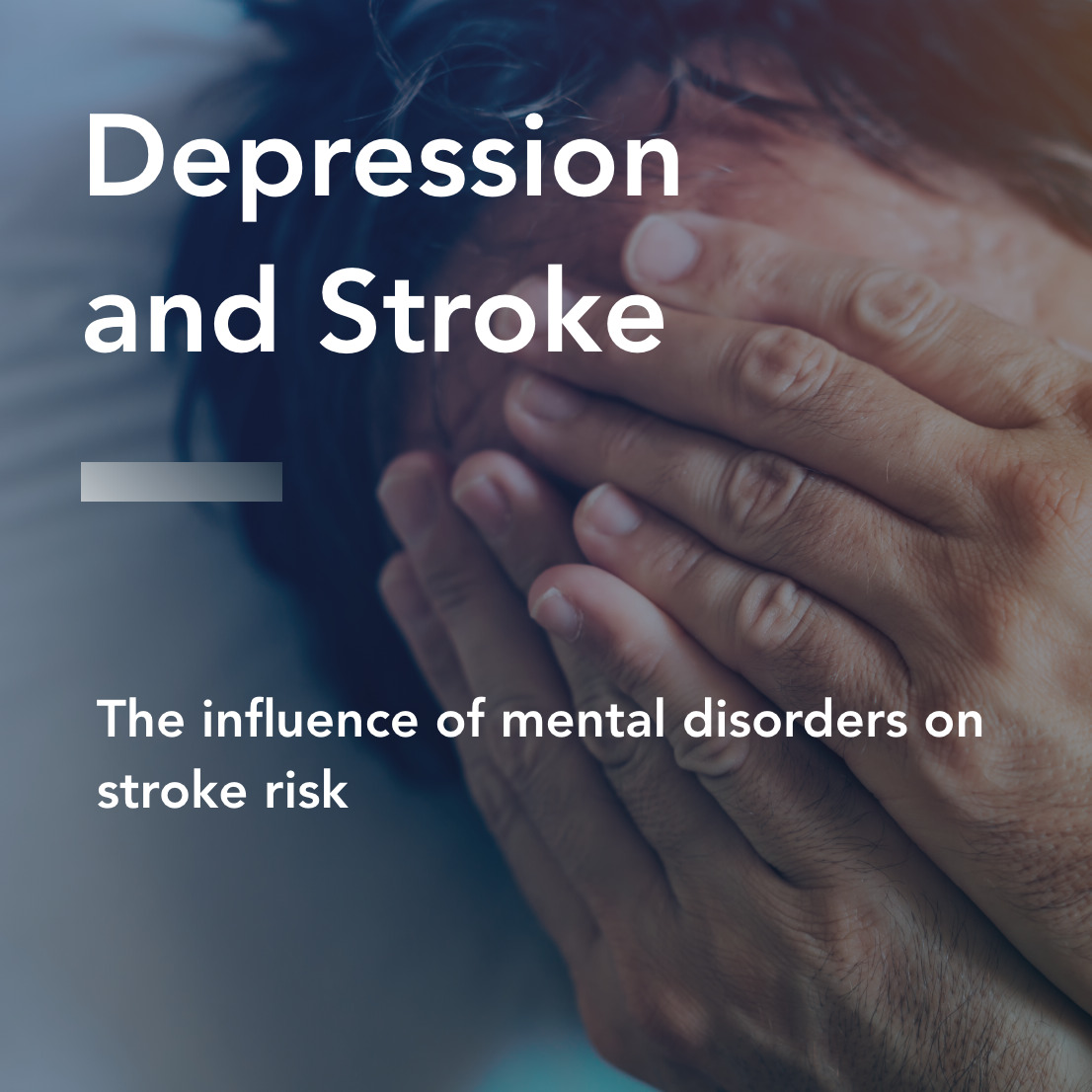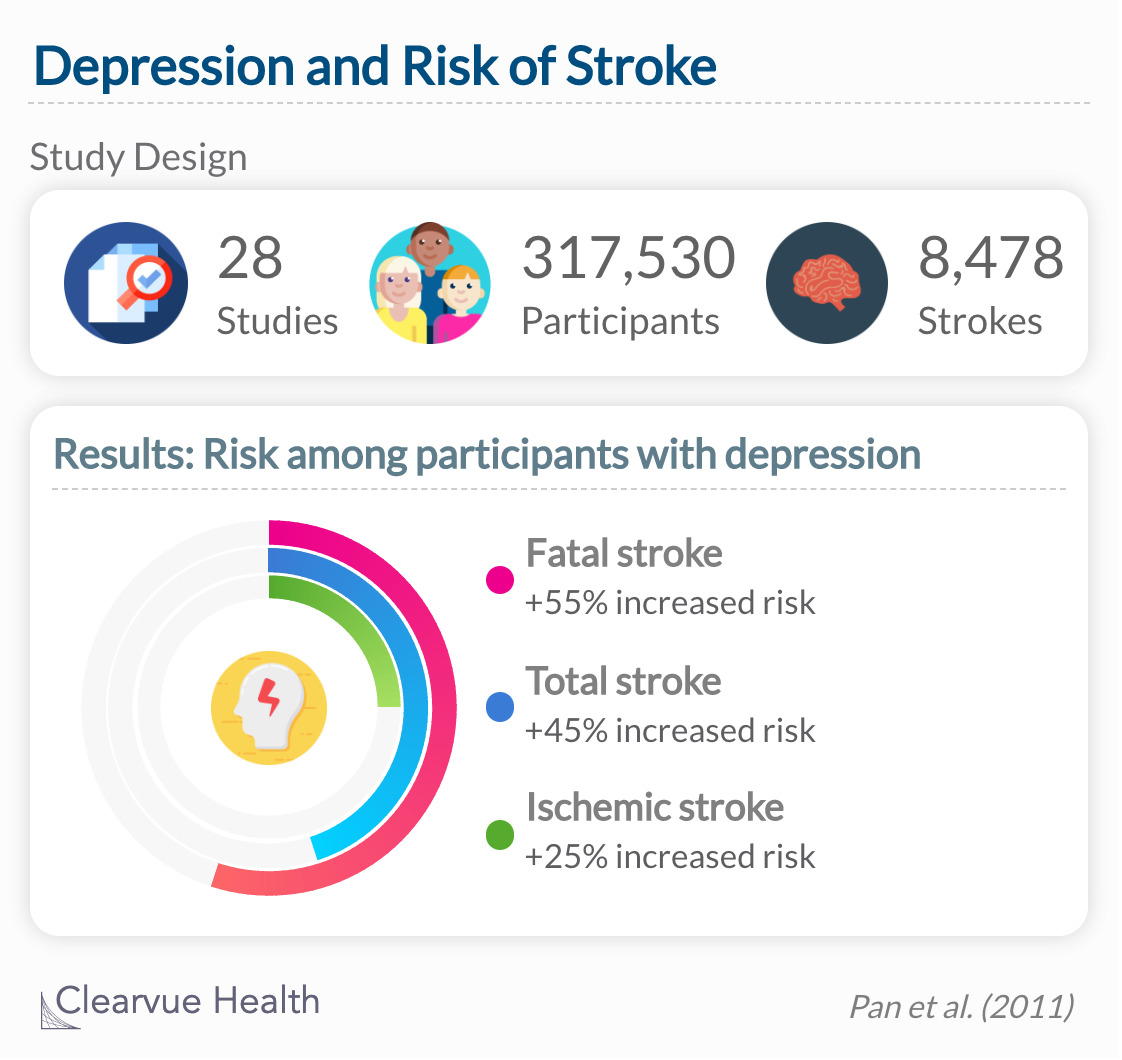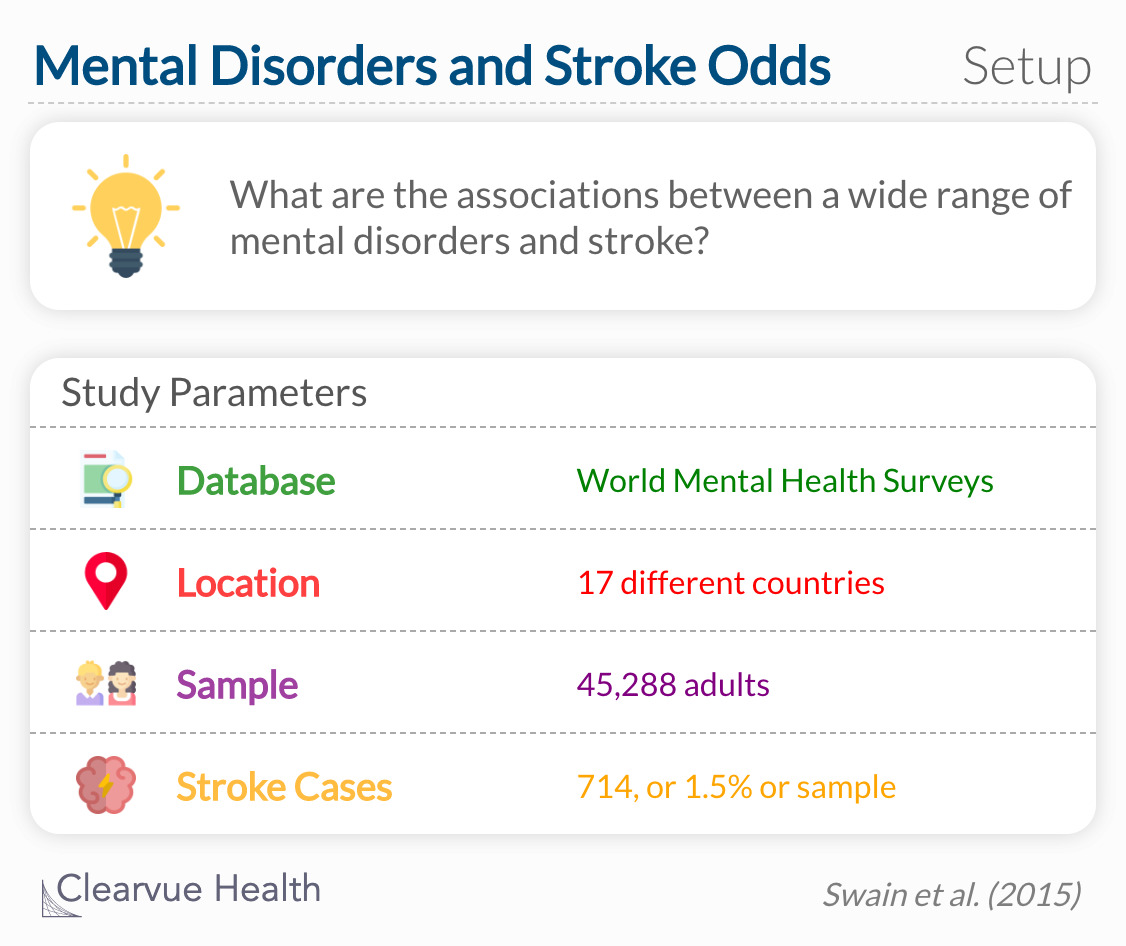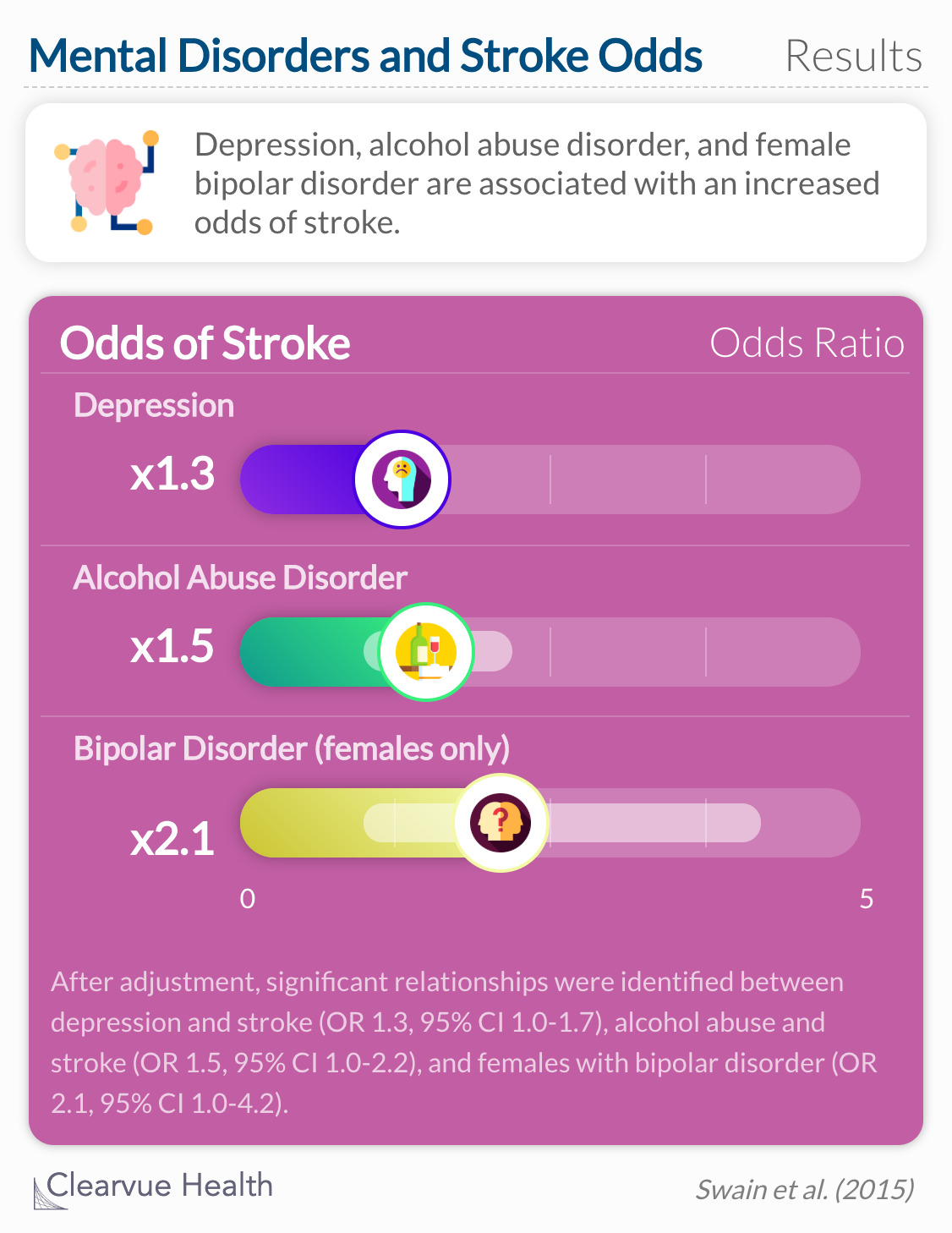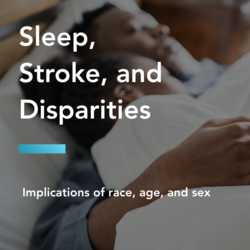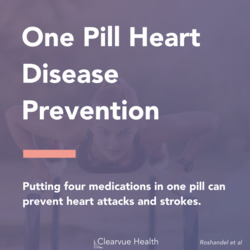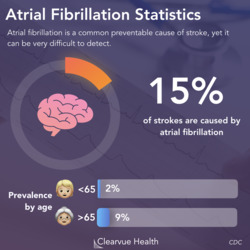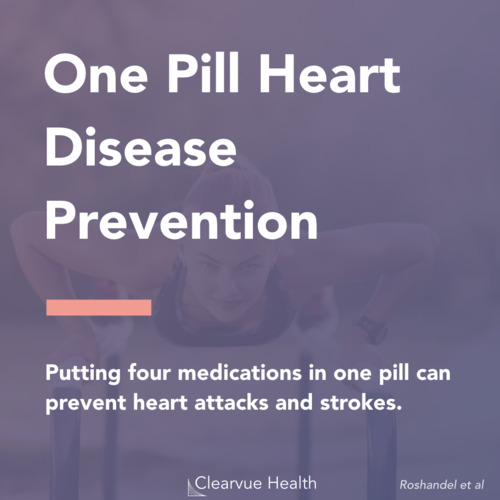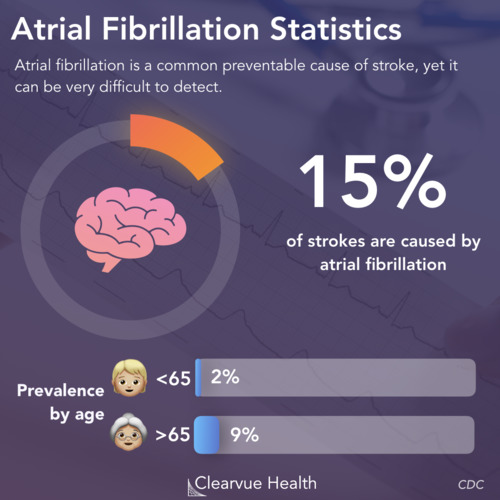Everyone thinks a bit differently about the mind and body connection. Some people believe that our physical health is strongly influenced by our emotional and mental well-being. This is where phrases like "Dying of a broken heart" came from. While possibly unbelievable to some, there is some evidence that supports these ideas.
Depression and Stroke
A serious condition that may be influenced by mental health is a stroke. A stroke occurs when there is a disturbance in the blood flow to the brain. A stroke can be life threatening, depending on the the parts of the brain effected and how long before the patient gets treatment. Extensive research has been conducted on the prevention and treatment of strokes. Due to the seriousness of the condition, it is not surprising that researchers want to explore the possibility of mental health having an impact on the risk of stroke.
Source: Depression and Risk of Stroke Morbidity and Mortality A Meta-analysis and Systematic Review
We reviewed a comprehensive analysis of 28 studies exploring the association between depression and stroke was published in JAMA. In total, the studies included 317,530 participants and 8478 cases of stroke. After pooling all the data, researchers estimate that participants with depression were 45% more likely to have a stroke and 55% more likely to die from a stroke.
At this point, the association between stroke and depression has the strongest evidence compared to other mental disorders. However, there are emerging studies that explore the risk of stroke in individuals with other mental disorders.
Other mental disorders and stroke
Promising evidence has come out associating other mental disorders and stroke. A large study accessed data from the World Mental Health Surveys. They looked at all incidences of mental disorders and stroke i an sample of 45,288 adults from 17 different countries. The size of this sample strengthens the study, because it covers a variety of demographics.
Source: Associations between DSM-IV mental disorders and subsequent non-fatal, self-reported stroke
The study reiterated the association between depression and stroke. They also found that alcohol abuse disorder increased the risk of stroke by 50%. However, it is difficult to separate alcohol consumption and alcohol abuse disorder from one another in this association. It is possible that the increased risk of stroke is influenced more by the physical repercussions of excessive alcohol consumption opposed to the mental disorder itself.
Interestingly, results indicated that females with bipolar disorder had more than double the risk of stroke than the general population. The association between bipolar disorder and stroke was not significant among males. This can not be explained by a difference in population size, because men and women are diagnosed with bipolar disorder at similar rates.
The mind and body relationship
These studies used strong evidence to suggest that depression and other mental disorders may increase a persons likelihood of stroke. We do not know how to explain these relationships. Can a poor mental state really hurt your physical well-being? Is there a physiological explanation? These questions are very difficult to answer and are regularly debated. Regardless, it is important to consider mental disorders as risk factors for stroke and other life-threatening conditions.
